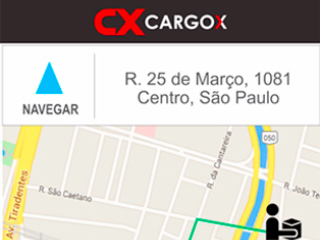Trump rescinds Biden executive order on artificial intelligence
The EO set AI safety and security standards and called for a report on AI's impact on labor
Read more...Mark this down as another prediction where I missed the mark. But, to be fair, I think everyone underestimated how quickly this would happen.
Uber will have self-driving cars transporting passengers throughout Pittsburgh as early as this month, according to a report in Bloomberg. Initially, human drivers will be behind the wheel in case anything goes wrong, but the overall goal is to work towards fully autonomous vehicles.
I’ve reached out to Uber to confirm the report and will update when I hear back.
In May, we reported that Uber was testing self-driving cars in Pittsburgh both to collect mapping data as well as to test the cars’ self-driving capabilities. Just three months later, it seems the company feels confident enough to start ferrying passengers around.
For that initial pilot, Uber used hybrid Ford Fusions equipped with a large structure of sensors atop the car, including radars, laser scanners, and high-resolution cameras for collecting mapping data. This time around, Bloomberg says the company is using “a handful” of Volvo XC90 sport utility vehicles with 100 promised by the end of the year.
Uber officially announced its partnership with the Swedish automaker on its corporate blog today. Reports say the two companies have committed $300 million to having a fully autonomous car ready for the streets by 2021. The deal is non-exclusive, which makes sense considering that Uber already partnered with Toyota back in May.

In addition to the deal with Volvo, Uber announced that it has acquired Otto (team photo above), a company working on self-driving trucks. Commercial trucking is a colossal industry, as indicated by all the emerging startups and fundraising rounds we’ve been covering this year from Transfix, CargoX, Convoy, and others. As part of the deal, Otto’s co-founder Anthony Levandowski will be leading Uber’s global self-driving efforts across personal transportation, delivery, and trucking, and he’ll be reporting directly to CEO Travis Kalanick.
“If that sounds like a big deal—well, it is,” said Kalanick. “More and more the world of atoms is interacting with bits. In order to provide digital services in the physical world, we must build sophisticated logistics, artificial intelligence and robotics systems that serve and elevate humanity.”
When I wrote up my yearly predictions for the sharing economy / on-demand space at the end of last year, my eighth prediction stated that Uber would “invest heavily in fully autonomous cars.” In hindsight, it’s apparent that the statement was less of a prediction and more of a description of what was already happening.
As far back as 2014, Uber CEO Travis Kalanick had traveled to Pittsburgh to visit Carnegie Mellon University’s robotics department, according to Bloomberg, in an effort to recruit a top-notch team of engineers and robotics experts. John Bares, formerly the director of CMU’s National Robotics Engineering Center for 13 years and founder and CEO of Carnegie Robotics for four years, joined Uber as director of its Advanced Technologies Center (ATC) in January 2015.
Early this year, Uber had hundreds of specialists working at the ATC.
Still, there are many questions about what all these announcements mean. For one, how soon should we expect self-driving cars in cities beyond Pittsburgh? Is Uber still working with Ford for additional self-driving vehicles? And trying to own self-driving across personal transportation, delivery, and trucking sounds like a wild, unwieldy endeavor—how much time and money will Uber really be investing in each of these areas?
We’ve reached out to Uber to learn more and will update when we hear back.
The EO set AI safety and security standards and called for a report on AI's impact on labor
Read more...The agency also published draft guidance on the use of AI in drug development
Read more...The biggest focus areas for AI investing are healthcare and biotech
Read more...Startup/Business
Joined Vator on
Uber is a ridesharing service headquartered in San Francisco, United States, which operates in multiple international cities. The company uses a smartphone application to arrange rides between riders and drivers.






